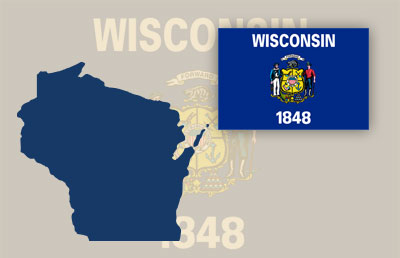Wisconsin Foreclosure Bidding and Real Estate Transfers and Payoffs

Wisconsin Amends Provisions Regarding Real Estate Transfers and Mortgage Payoffs
The state of Wisconsin has recently passed Assembly Bill 607, relating to nonprobate transfers of real estate, the transfer by affidavit procedure for small estates, and payoff amounts in mortgage payoff statements. These updates are effective immediately.
The new bill first creates more flexibility for the transferring of real property upon death. While previously a designated beneficiary could only be named in a “transfer of death” deed, the new bill allows designated beneficiaries to be named in any document. The only requirement is that all regulations and fees regarding the substitute document must be met and paid for, in order to ensure legality.
Second, the bill modifies Wisconsin’s transfer by affidavit procedure, so that it may be used when the gross value of the decedent’s estate is less than $50,000. When this procedure is used for real property, the decedent’s heirs must be notified. Once the affidavit is recorded with the county’s register of deeds, the transfer of real property is complete. The bill notes that purchasers and lenders who acquire improperly transferred property will be held harmless if acting in good faith.
Lastly, under prior law, creditors must provide payoff statements; however they are unable to state that a payoff amount is subject to change before the payoff date. The new bill creates more flexibility for creditors, by allowing them to qualify the payment amount, state that the payoff amount cannot be determined, or state that the payoff amount is subject to change under certain conditions.
Wisconsin Enacts Provisions Regarding Eligible Bidders at Foreclosure Sales
The state of Wisconsin has recently enacted provisions relating to eligible bidders at foreclosure sales, effective October 1, 2018.
The state of Wisconsin has passed Assembly Bill 691 in response to a longstanding problem with nuisance landlords that routinely purchase property at foreclosure auctions, but habitually fail to pay delinquent property taxes and court fines for building code violations.
Under current mortgage foreclosure law in the state, the only requirement of a winning bidder at a foreclosure sale is for the bidder to have cash for the purchase. Neither the court nor the sheriff conducting the sale do any screening of a bidder’s credentials or track record. This allows nuisance landlords with deplorable track records to continue to buy properties and damage communities.
Under the new bill, there are two requirements placed on successful bidders at foreclosure auctions. First, the successful bidder must submit an affidavit to the court affirming that the bidder does not own property in the state that is more than 120 days tax delinquent. And second, the affidavit must also affirm that the successful bidder does not have an outstanding judgement regarding noncompliance with state or local building codes. These affirmation must also be true for an entity that the bidder owns, manages, or controls, or for any entity that owns manages, or controls the bidder.
If a court confirms the affidavit to be false, the court can refuse to confirm the sale, can order the bidder’s deposit forfeited, and can order a new sale. If the court finds that the bidder knowingly made a false affirmation, the bidder may be fined up to $1,000 and barred from bidding for up to a year.
Zachary Pearlstein, JD, is a Regulatory Compliance Director with CLA's Mortgage Advisory Division. He joined CLA on January 1, 2014, as part of its acquisition of Bankers Advisory, Inc. Zachary oversees Mortgage Advisory's regulatory compliance team, which focuses on federal and state compliance, fair lending, and the Home Mortgage Disclosure Act (HMDA). He is a graduate of Brandeis University and earned his juris doctor at Suffolk University Law School. He is admitted to the Massachusetts Bar.

Comments are closed.